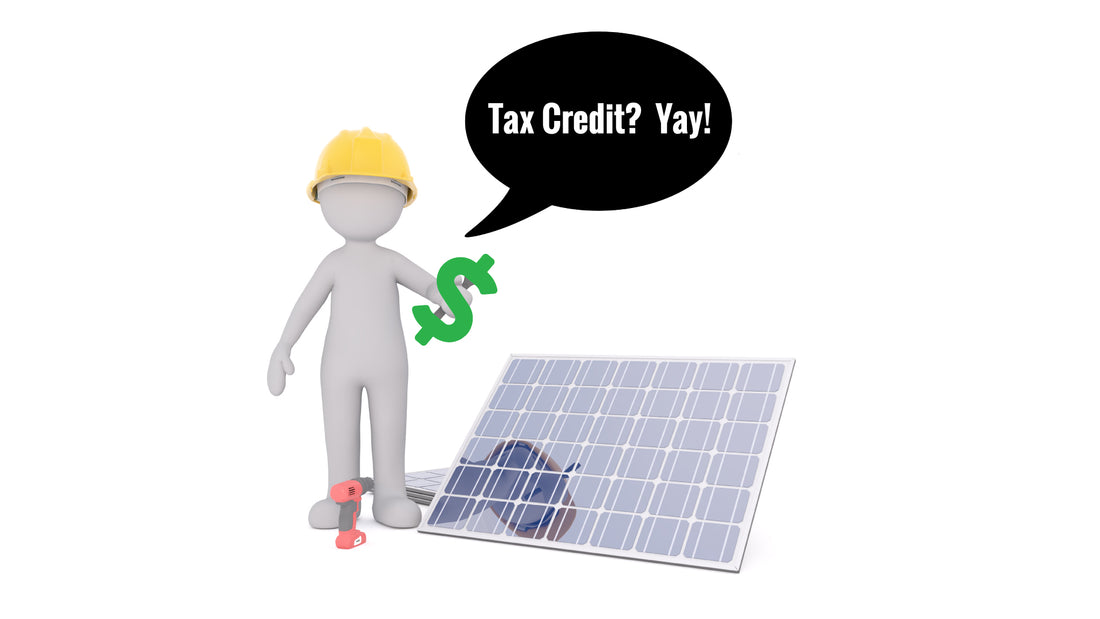The federal investment tax credit, or ITC, has been a big deal in the renewable energy industry for years now. It allows you to deduct 26% of the cost of installing a solar panel system, wind turbine, or energy storage from your federal taxes in 2021. That sounds great on the surface, but it actually kind of sucks. Let me explain.
The ITC has been around since 2005 and was originally set to expire in 2007. But the US government has continued to renew it each time it is set to expire because it has been so popular with the public and politicians alike, especially for solar. Solar companies, especially installers, love to use it as a selling point in their marketing and sales pitches because it translates to $9,000 on the average solar install according to EnergySage. So that is a huge discount that sways many people to take the plunge and install solar panels on their homes.
But there are a few problems with the ITC. The first and biggest one is that it may not benefit most lower and middle income households in the United States. That is because the ITC is a tax credit and not a rebate. What is the difference? A tax credit directly reduces the amount of taxes you owe. But you actually have to owe taxes for that to work. So, for example, lets say you purchased a solar panel system and the ITC value was $9,000. You calculated your taxes for the year and ended up owing Uncle Sam $2,300. So your $9,000 tax credit actually only results in $2,300 in savings. Now there are exceptions to this definition of tax credit, but the ITC is not an exception. And yes, you can roll over tax credits to the next tax year up to a maximum of 5 years. But the point is most low income and many middle income families don't pay taxes or pay very little in taxes. Especially if you have kids, charitable donations, a home, and lots of other tax deductions. I've personally been filing taxes for almost 25 years and have never paid any federal income taxes. So for those people who don't owe federal taxes, the ITC does you no good. And those are the people who need the savings the most!
And that brings up the second problem, which is the delay in seeing any value from the ITC. Most solar incentives are rebates or cash discounts, so many people see that ITC line item on a solar quote and assume it works the same way. A tax rebate pays out no matter what taxes you may or may not owe and you don't have to wait for the money. You can get it immediately without waiting to finish filing your taxes or receiving your tax return. This is how hybrid car tax rebates have worked for years and how other solar incentives work on the state and municipality level. And this is how car and truck manufacturers do their incentives, too. Solar companies LOVE to show you that full ITC value right up front on the quote sheet to make the net cost look pretty good. Some of them pretty much lie about it but, to be fair, most of them do a good job of showing that it is a net benefit and that the cash outlay will be higher. But I still talk to countless people that feel they were hoodwinked on their solar install with all the promises of incentives, discounts, credits and rebates. But it could be years before you may be able to use all those tax credits IF you are someone who ever owes any taxes. From my experience, if this were clearly understood by buyers, many of them would not have purchased the system or would have purchased a smaller system that was more affordable.
In summary, solar is a long term investment and the ITC is a good idea. But a lack of understanding about how it works, the assumption that it will provide value to everyone, and the misconception that it provides immediate value make it kinda suck. If you are shopping for a solar panel system or battery energy storage now or in the future, please educate yourself on all aspects of these systems and that includes consulting a tax professional to make sure you will benefit and understand when that benefit will come. Because that slick Rick solar sales guy knocking on your door is more than happy to prey on your ignorance if you don't.

